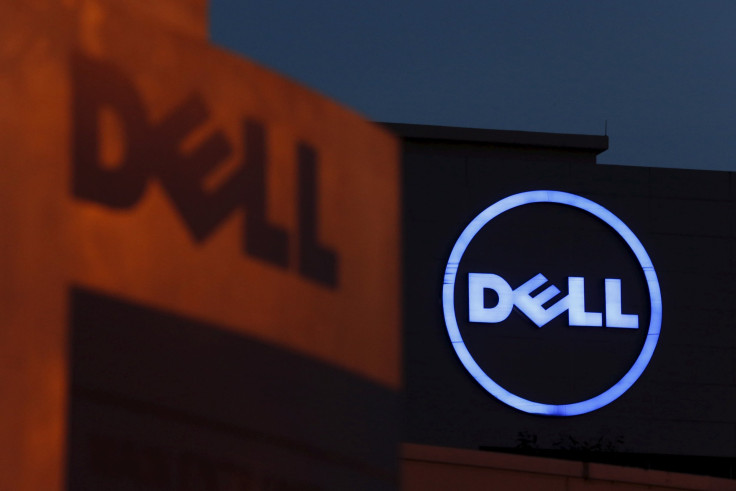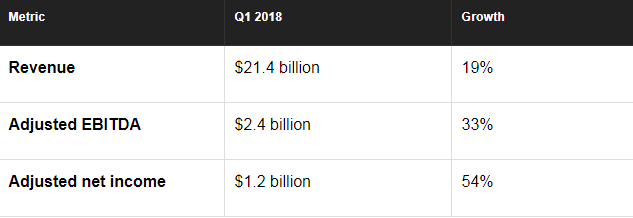Dell is Going Public Again
Nineties tech-boom darling Dell will soon be traded on the New York Stock Exchange once again. Founded in 1984 by then-19-year-old Michael Dell, Dell Computer rose to be one of the leading tech companies over the 1990s and early 2000s. But in the early 2010s, the world turned rapidly to "rented" cloud computing, software-defined networking, and other tech innovations that have commoditized much of the hardware market.
This article originally appeared in the Motley Fool.
Appreciating the need for transformation, Michael Dell and private equity firm Silver Lake Partners teamed up to buy out public shareholders and take the company private in 2013. Away from the challenging gaze of the public markets, Dell & Co. transformed the company via acquisition and investment. Five years later, it appears Dell and Silver Lake feel the company is in much better shape and ready for the spotlight once again.
Making moves
The big move Dell made while private was the 2016 acquisition of fellow tech giant EMC for $67 billion. EMC owns data storage, software, and security assets that are more relevant to the modern age of computing, and Dell changed its name from Dell Computer to Dell Technologies to signal the shift away from hardware.
EMC, already a tech conglomerate in its own right, owns majority stakes in two other publicly traded companies, Pivotal Software, which had its own initial public offering of a minority stake just this past March, and VMware. Now both are controlled by Dell.
To pay for the EMC acquisition, Dell created a tracking stock (which tracks a portion of a business without conferring actual ownership) to raise money. The stock is officially called Dell Technologies (NYSE:DVMT) but tracks EMC's (now Dell's) 82% stake in VMware. Now Dell is buying out DVMT shareholders, making Dell Technologies publicly traded. Investors will now be able to own shares in the overall Dell conglomerate for the first time in five years --- not just pieces of it.
Terms of the deal
If you own DVMT stock, you'll be able to choose whether you wish to be paid $109 per share in cash or receive 1.3665 Dell shares per share (DVMT has shot up to the mid-$90s as of this writing). The $109 is a 29% premium to the preannouncement stock price.
The way in which Dell is buying out DVMT shareholders shows savvy financial engineering on Dell's part. A tracking stock doesn't actually impart ownership, but rather tracks a particular asset's performance. While still remaining in control, Dell has exploited the attractive VMware segment for all it's worth.
First, by selling the VMware-tracking stock back in 2016, Dell was able to raise money from its stake in VMware (the most attractive, highest-growth part of the business at the time) to fund its turnaround of the "less good" part of Dell. Now that the Dell-EMC team believes the overall conglomerate is better-positioned, it's using cash and Dell conglomerate stock, which likely garners a better relative valuation today, to buy back that interest in its 82% share of VMware.
And since Dell still owns a majority of VMware, it can also milk VMware for even more cash to buy out the owners of the tracking stock! As part of the transaction, VMware will issue an $11 billion dividend to its shareholders. As a majority shareholder, Dell will receive roughly $9 billion to fund part of the purchase to buy out DVMT shareholders who opt for cash.
It should be noted that the public still has the option to own "pure" VMware if they only want to own the high-growth software company, as the remaining 18% of VMware will remain publicly traded.
Dude, you're getting Dell...stock
Dell still needs to garner the support of a majority of public DVMT shareholders, so it's touting how well the current Dell/EMC company is doing: "Dell Technologies is experiencing strong positive momentum across its businesses after a period of strong revenue growth, earnings, cash flow and accelerated debt pay-down."

There is some truth to this. Dell has become the leading enterprise server vendor, with 19.1% market share last quarter (by revenue), with server revenue growing a huge 50.6% year over year.
Not only are cloud giants scooping up servers by the bucketload, but Dell even grew the "old" PC segment 6.4% last quarter, having taken market share for 21 straight quarters.
Strength in these core businesses has led to strong overall performance for the Dell conglomerate:

A "yes" vote is likely
Not only is Dell performing well currently, but Michael Dell and Silver Lake are also retaining their stakes, and both have made statements about their long-term commitment to Dell. In fact, the public will only own 20.8% to 31% of the new company, depending on how many opt for cash versus shares. "We are excited that public investors will share in Dell Technologies' dynamic value creation with Silver Lake, which has no plans to seek liquidity and remains an enthusiastic long-term shareholder," Silver Lake said in a press release.
With that type of credibility (plus that nice $11 billion cash infusion from VMware), it's likely that shareholders will vote yes. According to sources quoted by The Wall Street Journal, even activist investor Carl Icahn, who owns both DVMT and VMware stock, said he won't hold out for a higher price.
Billy Duberstein owns shares of IBM. His clients may own some of the companies mentioned. The Motley Fool recommends VMware. The Motley Fool has a disclosure policy.





















